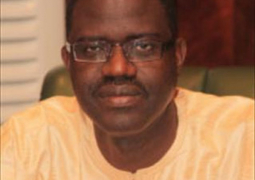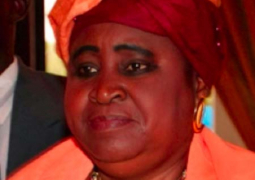TheUnited Nations Population Fund (UNFPA) in its effort to see a reduction in maternal mortality have partneredwith journaliststo train them on the importance of sexual and reproductive health, family planning, demographic issues and how to report on them.
The UNFPA held a five-day training workshop for journalists from all the media houses in the country, both print and electronic, at Tendaba Camp, to give reporters a wider scope of understanding on such topics as sexual and reproductive health and family planning, which will go a long way in helping them prepare well-informed reports on such issues.
This development is considered a step in the direction, and for which UNFPA needs a tap on the back.
It is no hidden truth that women continue to suffer the consequences of sexual and reproductive health and family planning, which in so many cases is as a result of ignorance from being ill-equipped with the necessary information to take the right measures when in such health condition.
Therefore, developing the capacities of journalists on such topics would help reporters greatly in preparing good and accurate reports on sexual and reproductive health, and family planning issues for publication.
“A recent United Nations report warns that the number of forcibly displaced people has risen to a record number – almost 60 million at the end of 2014. Among these, most women and adolescent girls face particular threats as a result of the absence of health and other essential services that they need,” a UNFPA press release stated.
It continues: “Even under normal conditions, reproductive health complications are a leading cause of death and illness among women of childbearing age. In humanitarian situations, an estimated one in five women and adolescent girls are likely to be pregnant. As skilled birth attendance and emergency obstetric care often become unavailable, pregnant women’s and girls’ vulnerability to death and injury is further exacerbated.
“Women and adolescent girls also face much greater risk of abuse, sexual exploitation, violence and forced marriage during conflicts and natural disasters. In addition, many women who survive a crisis become heads of household, with the sole responsibility of caring for their children. They often have to overcome immense obstacles to provide health and care for children, the sick, the injured and the elderly, and bear the heaviest burden of relief and reconstruction. As a result, they may neglect their own needs as they care for others.”
The Tendaba Camp training workshop, according to the UNFPA, would not only serve as a platform to get journalists up-to-date about the activities of the UNFPA; it would also set the space for the beginning of a new partnership between the UNFPA and media houses.
“It is that partnership that we are trying to draw with media houses to be able to disseminate information relevant to the lives of the people,” said the assistant Country Representative of UNFPA.
The collaboration is, therefore, highly commendable as it will go a long way in helping both sides to do their work effectively.
“It’s all to do with the training: you can do a lot if you’re properly trained.”
Queen Elizabeth II
Read Other Articles In Article (Archive)




